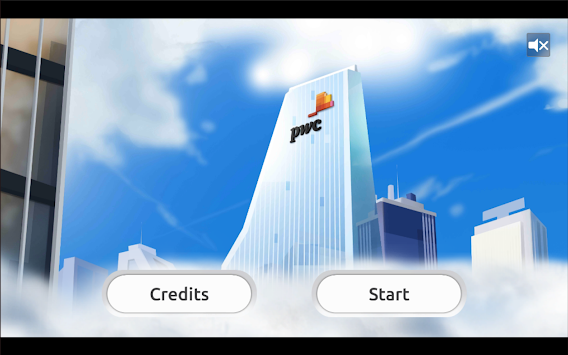Career Unlocked: A PwC Game-Based Test (2025 Guide)
All products and services featured are independently selected by WikiJob. When you register or purchase through links on this page, we may earn a commission.
- A List of PwC Tests Available for Practicing in 2025
- How Does the PwC Assessment Test Work?
- What Is a Good Score on the PwC Assessment Test?
- PwC Assessment Test - The Report Card
empty
empty
empty
empty
empty
- How to Play Career Unlocked (2025)
- How to Prepare for the PwC Assessment and Get a Job
- What Other Tests Might You Face During A PWC Assessment?
empty
empty
empty
empty
empty
empty
- Top Tips for Passing PwC Assessment
A List of PwC Tests Available for Practicing in 2025
- PwC Test Practice
- PwC Logical & Inductive Reasoning Test
- PwC Graduate Program & School Leavers Preparation
- PwC Assessment Centre & Interview Preparation
- PwC Numerical Reasoning Test
- PwC Australia Tests
Career Unlocked is a new game-based assessment used by PwC in its recruitment process. Essentially, Career Unlocked aims to be an aptitude test taken in a different, more engaging way.
It also aims to assess more broadly than other psychometric tests. It measures you on your numerical reasoning and abstract reasoning abilities, as well as looking at your behavioural tendencies.
The test is designed by Arctic Shores, which says that the test “collects over 3,000 data points from the way in which you approach and decide to address each task”. It uses these data points to assess your aptitude and suitability for the role you’re applying for.
According to the game’s designers, you won’t need any special abilities or familiarity with games to do well. Of course, practicing aptitude tests will always help, but if you’re not a gamer you won’t be disadvantaged.
On the other side of that coin, if you are an avid gamer you won’t have a distinct advantage over other candidates. You should treat it like any other aptitude test and not be complacent.
Practice PwC Online Test with JobTestPrep
How Does the PwC Assessment Test Work?
Career Unlocked consists of eleven different games covering the different skills PwC wants to assess. The test can be completed via a mobile app (iOS or Android), or on a computer (Windows or OS X).
Note that some older systems and phones are no longer supported. The game also runs a little slower on computer, so using a phone is preferable.
These games cover a wide range of different assessments. Included in them is a more standard numerical reasoning test featuring 18 questions and a logical reasoning test with 20 questions.
Prepare for these separately as you normally would. Be sure to check out our guides to numerical reasoning tests, logical reasoning tests and cognitive ability tests.
Each game in Career Unlocked is small and the controls are designed to be very simple and intuitive. If played on your phone, you will not need to do anything other than tap your finger, and the controls will be clearly explained before you start.
Games include exercises like decoding the five-digit lock on a safe, selecting the next number in a sequence and identifying how a person is feeling based on their facial expression.
In general, they are a mix between reaction games, logical reasoning games and behavioural assessment games.
Other games include a balloon game that’s about taking calculated risks, pressing on the balloons to inflate them as much as possible without bursting. There are also memory games, for which you should make sure you have pen and paper handy.
While the test isn’t explicitly timed, time is still important. Some candidates have said that if you spend too long on the test, you will simply fail. The recommended time to completion is around 75–85 minutes.
The important thing to remember here is to not be too perfectionist, trying to ace every exercise. Get a solid score and move on.
At the end of the test, your data will be sent to the servers and a report will be generated outlining how you did.
What Is a Good Score on the PwC Assessment Test?
It’s tough to tell what a good score is in Career Unlocked because it’s not really ‘scored’ like a normal game. As mentioned previously, PwC is not only looking at the outcomes of the games, but also how you play.
The aim is more to see your thinking process and your approach to logical problems under pressure.
More important is the feedback that you receive at the end, which describes how the system assessed you and what that means.

Similarly, many of the game-based assessments are behavioural. That means there is no right answer. Instead, these are questions that aim to build a profile of your personality and predict how you might act in work situations.
With that in mind, don’t stress too much about how you might score or how quickly you can rush through each game. Focus instead of approaching each problem calmly and logically.
If you score well enough, you will be immediately invited to a video interview.
If you score a little lower, but not enough for an outright rejection, you will instead be asked to wait until the deadline has passed.
If there aren’t too many later candidates who then surpass you, you might still get through to the next stage.
If you need to prepare for a number of different employment tests and want to outsmart the competition, choose a Premium Membership from JobTestPrep.
You will get access to three PrepPacks of your choice, from a database that covers all the major test providers and employers and tailored profession packs.
PwC Assessment Test - The Report Card
The report card you get at the end is structured into five sections, each with a number of indicators that measure specific aspects in relation to a comparison group:
1. Personal Style
This part has one indicator that measures how well you can interpret emotions and facial expressions.
2. Cognition
This section has two indicators. The first measures how quickly you can process information in comparison to other candidates, while the second judges whether you are more confident working with larger or smaller amounts of information.
3. Drive
There are three indicators here:
- The first aims to measure whether your are more or less motivated by reward.
- The second looks at how quickly you tend to bounce back after setbacks, remaining focused on the goal despite adversity.
- The third indicator looks at whether you are more influenced by thoughts and feelings, or by values and goals.
4. Interpersonal Style
In this section there are four indicators. These aim to measure the following:
- Whether you prefer your own style or tend to adjust your behaviour according to the context.
- Whether you are more focused on personal needs or the needs of others.
- Whether you tend to be more passive and thoughtful or more dominant and assertive.
- Whether you feel more or less energised by social situations.
5. Thinking Style
Eight indicators are used to look at how you approach problems and make decisions:
- Whether you tend to deliberate carefully or trust your instincts on decisions that involve risk.
- Whether you tend to be more realistic or more optimistic.
- Whether you prefer familiarity and consistency or variety and change.
- Whether you prefer tried and tested solutions or new, experimental approaches.
- Whether you tend to be more impulsive or deliberative.
- Whether you tend to make decisions based on intuition or on rational thought processes.
- Whether you’re more comfortable with certainty and predictability or with uncertainty and unpredictability.
- Whether you tend to think more precisely or more creatively.
Again, there are no right or wrong answers here. In each of these indicators, both ends of the scale have their advantages and disadvantages.
But it’s useful to know that these are the factors you are being assessed on when you tackle the test.

How to Play Career Unlocked (2025)
The following advice is worth reading before you try the game for real:
Step 1. Read the Instructions Carefully
Before each game, you will be told how it is played and what the goal is.
Make sure you’re absolutely certain of what you need to do – there’s no sense in messing up because you skimmed the guidelines.
Step 2. Don�’t Stress About the ‘Game’ Side of It
If you’re not an avid gamer, don’t let the word scare you into thinking your job opportunity will be scuppered by people who play Call of Duty ten hours a day.
That’s not how it works.
The controls and the games are based on research into cognitive aptitude tests and are designed to be intuitive even to non-gamers.
Step 3. Borrow a Phone or Tablet if Yours Is Old
Unfortunately, because many of the games rely on reaction time, if you have an old, sluggish phone, your performance might be impacted.
If you’re able to, play the game on a friend’s newer, more powerful phone.
Note that it it not recommended to play on PC or a laptop, as the games run slower, which can affect your score.
Step 4. Make Sure You Won’t Be Disturbed
This is especially important, as you’re likely to be playing Career Unlocked on a phone.
Turn your phone onto Do Not Disturb mode or something similar.
The last thing you want while trying to concentrate on the test is for a group chat to suddenly blow up. Turn it on silent too.
Then check your surroundings. Make sure your family or roommates know that you are not to be disturbed, close your door and remove any other potential distractions.
Step 5. Inform Them if You Have a Disability
Disabilities of all kinds can be and are accommodated and/or accounted for in the assessment.
If you have a disability that you think could affect your performance, let them know as quickly as you can and see what they can do for you.
Step 6. Try Out a Practice Game First
The company that makes the Career Unlocked games is called Arctic Shores.
On the website, the company provides a free game called Firefly Freedom that candidates can use to practice.
This is a different game to what will be used in the assessment, but it’s a good idea to become familiar with the style anyway.
It’s also well worth visiting the candidate support page, where there is a list of useful FAQs.
How to Prepare for the PwC Assessment and Get a Job
Here are some tips to help you in the preparation process:
- Research PwC: Start by thoroughly researching PwC as a company. Understand their values, culture, services, and clients. Familiarize yourself with their recent projects, initiatives, and industry trends. This knowledge will be useful during interviews and assessments.
- Understand the Assessment Process: Gain a clear understanding of the different stages of the PwC assessment process. This may include online applications, psychometric tests, interviews, assessment centers, and case studies. Knowing what to expect at each stage will allow you to prepare more effectively.
- Review Core Competencies: PwC typically assesses candidates based on specific competencies relevant to their roles. Review the core competencies outlined by PwC for the position you are applying for and think about how you can demonstrate these competencies in your answers and actions.
- Practice Psychometric Tests: PwC commonly uses psychometric tests to evaluate candidates' cognitive abilities, including numerical reasoning, verbal reasoning, and logical reasoning. Seek out practice tests or resources to familiarize yourself with the types of questions and improve your performance. Practicing under timed conditions can help you manage your time effectively during the actual tests.
- Develop Commercial Awareness: PwC values candidates who demonstrate commercial awareness and a good understanding of the business environment. Stay updated on current business news, industry trends, economic developments, and PwC's areas of expertise. This knowledge will enable you to discuss relevant topics confidently during interviews or case study exercises.
- Enhance Your Communication Skills: Effective communication is crucial at PwC. Work on improving your verbal and written communication skills. Practice articulating your thoughts clearly, listening actively, and structuring your responses in a concise and professional manner. Be prepared to provide examples of situations where you effectively communicated and collaborated with others.
- Prepare for Case Study Exercises: PwC may include case study exercises to assess your problem-solving and analytical skills. Practice analyzing complex problems, breaking them down into manageable components, and presenting your solutions logically. Familiarize yourself with frameworks commonly used in consulting, such as the SWOT analysis or the 4Ps of marketing.
- Attend Networking Events: Take advantage of any networking events or opportunities to engage with PwC professionals. This can provide valuable insights into the company culture and help you build connections. Networking can also give you a better understanding of PwC's work and industry-specific knowledge.
What Other Tests Might You Face During A PWC Assessment?
During a PwC assessment, in addition to the Pymetrics assessment, you may encounter other types of tests and exercises.
The specific tests and exercises can vary depending on the position you are applying for and the stage of the assessment process.
Here are some examples of additional assessments you might face during a PwC assessment:
Numerical Reasoning Test
This test assesses your ability to work with numerical data, analyze graphs and charts, and make calculations quickly and accurately.
It typically involves multiple-choice questions that require you to interpret data and solve numerical problems.
Verbal Reasoning Test
This test evaluates your reading comprehension skills, as well as your ability to understand and analyze written information.
You may be presented with passages of text and asked to answer questions based on the information provided.
Logical/Abstract Reasoning Test
This type of test assesses your ability to analyze patterns, solve problems logically and think critically.
You may be presented with sequences of shapes or patterns and asked to identify the next shape or pattern in the sequence.
Situational Judgment Test (SJT)
An SJT presents you with hypothetical work-related scenarios and asks you to select the most appropriate course of action from a set of response options.
This test evaluates your judgment, decision-making and ability to handle different workplace situations.
Group Exercise: In a group exercise, you will work with other candidates to solve a problem or complete a task as a team. This exercise assesses your teamwork, communication, problem-solving, and leadership skills.
Case Study
A case study involves analyzing a realistic business scenario and providing recommendations or solutions.
This assessment evaluates your analytical thinking, problem-solving and ability to apply business knowledge to real-world situations.
Presentation or Role-play
Depending on the role you are applying for, you may be asked to deliver a presentation or participate in a role-play exercise.
These assessments evaluate your communication, presentation and interpersonal skills.
It's important to note that the specific assessments you encounter during a PwC assessment can vary.
PwC may adapt the assessment process based on the position you are applying for and their specific requirements.
It's recommended to refer to the official PwC Career website or reach out to PwC directly for the most accurate and up-to-date information regarding the assessment process for your particular application.
Top Tips for Passing PwC Assessment
During the PwC assessment center, it's crucial to demonstrate your abilities and fit with the company.
A top tip for success is to actively engage with the group exercises and demonstrate effective teamwork and collaboration skills. Listen to others, contribute your ideas, and support your teammates.
Be proactive, organized, and adaptable to changing circumstances. Effective communication, leadership potential, and the ability to work well in a team are highly valued at PwC.








